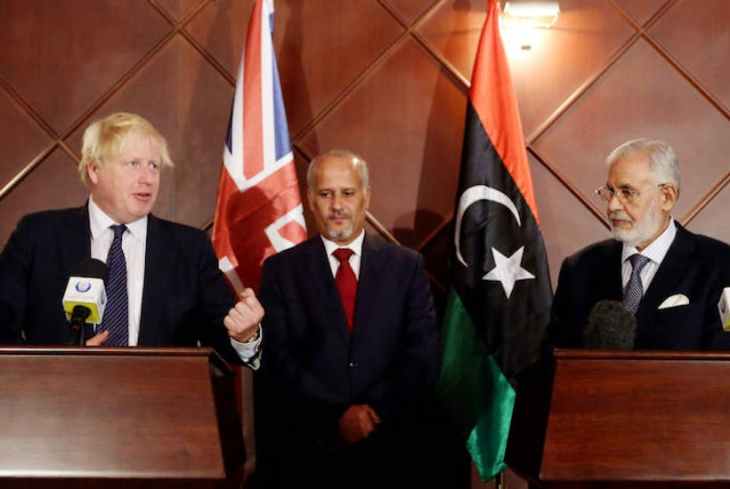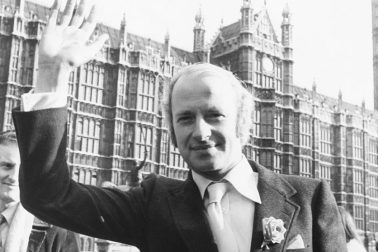The separation between ‘members’ and ‘strangers’ always struck me as being one of the most archaic aspects of the House of Commons. When Natasha Barley, the brilliant director of the Children’s University in Hull, asked me (as the charity’s patron) to arrange a meeting with the Education Secretary, Damian Hinds, I felt obliged to accompany her on my first journey back since retiring as an MP in 2017. Damian graciously agreed to meet us in his Commons office so I led Natasha to the 1 Parliament Street entrance that I’d used for 20 years and showed my ex-MP’s pass to the uniformed officer on duty. ‘I’ve told you before,’ she barked (inaccurately), ‘you can’t use this entrance and you’re not entitled to bring in visitors.’ Natasha stood behind me, horrified that the man she thought might carry a residue of influence was now, like her, a ‘stranger’.
Last week and next you can hear me presenting a programme on Radio 4 that traces the modern history of education in England through the trials and tribulations of a single school opened in 1884 as St Michael and All Angels, which, as the Ark All Saints Academy, occupies the same site today. The school was established to educate the poor boys of Camberwell, south London, and its journey from Angels to Saints is a fascinating one encompassing two world wars, numerous education acts and designation as an elementary, secondary modern, comprehensive and academy school. The thing about writing for The Spectator is that one feels the hand of history hovering over one’s pen (to paraphrase a previous PM). When St Michael and All Angels first opened its gates, this magazine had been going for 56 years. A decade earlier, Thomas Hardy’s Far From the Madding Crowd was published, in which Bathsheba asks her servant Liddy, ‘Why should I read dismal books, indeed? Bring me some volumes of The Spectator.’
The BBC is grappling with a dilemma forced upon it by George Osborne when he was chancellor. From 2020 the Corporation will be forced to fund the full £745 million cost of providing a free TV licence to households where one resident is over 75. One of the most significant achievements of the Blair government was its success in tackling pensioner poverty. When Labour took office in 1997 there were more than two and a half million pensioners living in abject poverty. By 2004, the Institute for Fiscal Studies was reporting that for the first time in recorded history, being old was no longer associated with being poor. This transformation was largely due to the introduction of Pension Credit, which brings pensioner income up to an adequate level. This was supplemented by the winter fuel allowance, free eye tests and the free TV licence. But what was necessary 20 years ago may be questionable today. And not having the guts to take a decision on this aspect itself, the government transferred it to Auntie. The BBC is consulting on three options to make this concession affordable. The most rational is to confine it to those on Pension Credit, which would almost halve the cost while ensuring help remained for those in need. This decision should be taken by the Corporation, but the flak should be taken by the government that dreamt up this cynical ruse.
The decision to scrap This Week, Andrew Neil’s Thursday night exercise in not taking yourself too seriously, could surely have had nothing to do with budgets. The show is produced on an allowance so stingy that if it were a car driving in the rain its windscreen wipers would have to be turned off every time it went under a bridge. And yet This Week has been attracting an audience of between 1 and 1.6 million every week. Having been a contributor for eight of the 15 years it has been on air, I never cease to be amazed by how many people approach me to express their affection for the show. That affection has never been entirely shared in the higher echelons of the BBC and I’m pretty sure that the full story behind the decision to scrap the programme has yet to emerge.
As I write, the breakaway group of independents in the House of Commons still numbers 11: eight Labour and three Conservatives. I’m not sure if I’d have had the guts to take such drastic action, although I would have been equally concerned about the appalling lack of leadership affecting both parties. The only way I can see the independents succeeding is if they (and some of the other odds and sods cast aside on the Labour benches) fight on one issue only: Britain’s future relationship with Europe. Given the parliamentary arithmetic, this grouping could free Theresa May from the clutches of the DUP and provide a non-Corbynite flag for others in the Parliamentary Labour Party to rally around.






Comments